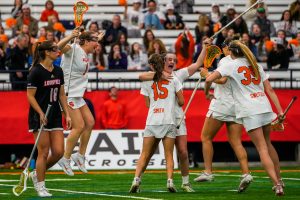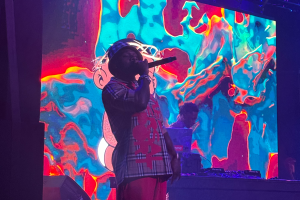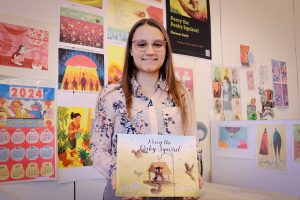People turn to fandom to cope with COVID-19
People turn to fandom amidst pandemic
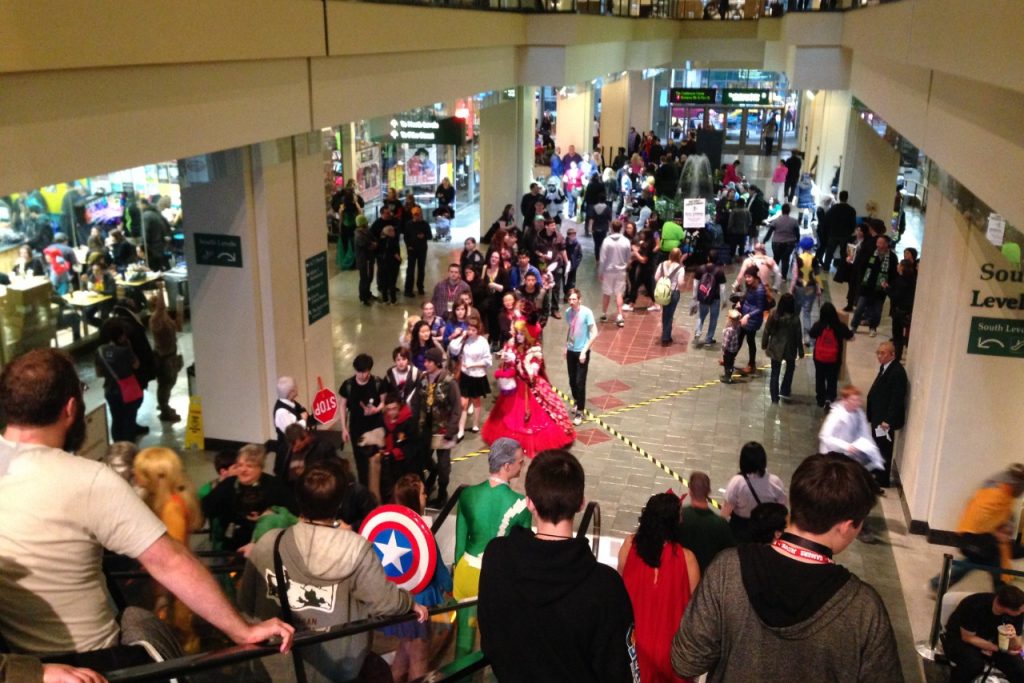
It’s March 29, 2014, and Paula Ono, a 35-year-old from Brazil, is giddy with excitement as she walks into the Washington State Convention Center. In a few hours, she’s going to meet “Lost Girl” stars Kris Holden-Ried and Zoie Palmer.
Before queueing up for autographs, she strolls through the aisles of vendors, collecting one-of-a-kind merchandise and artwork. When chatting one-on-one with the actors, she tells them over and over how much she loves them. Heartbeat quickening and stomach-dropping, that sensation continues throughout the day as she watches their panel and poses for a photo with them. After returning home, she promises herself she will attend more conventions in the future.
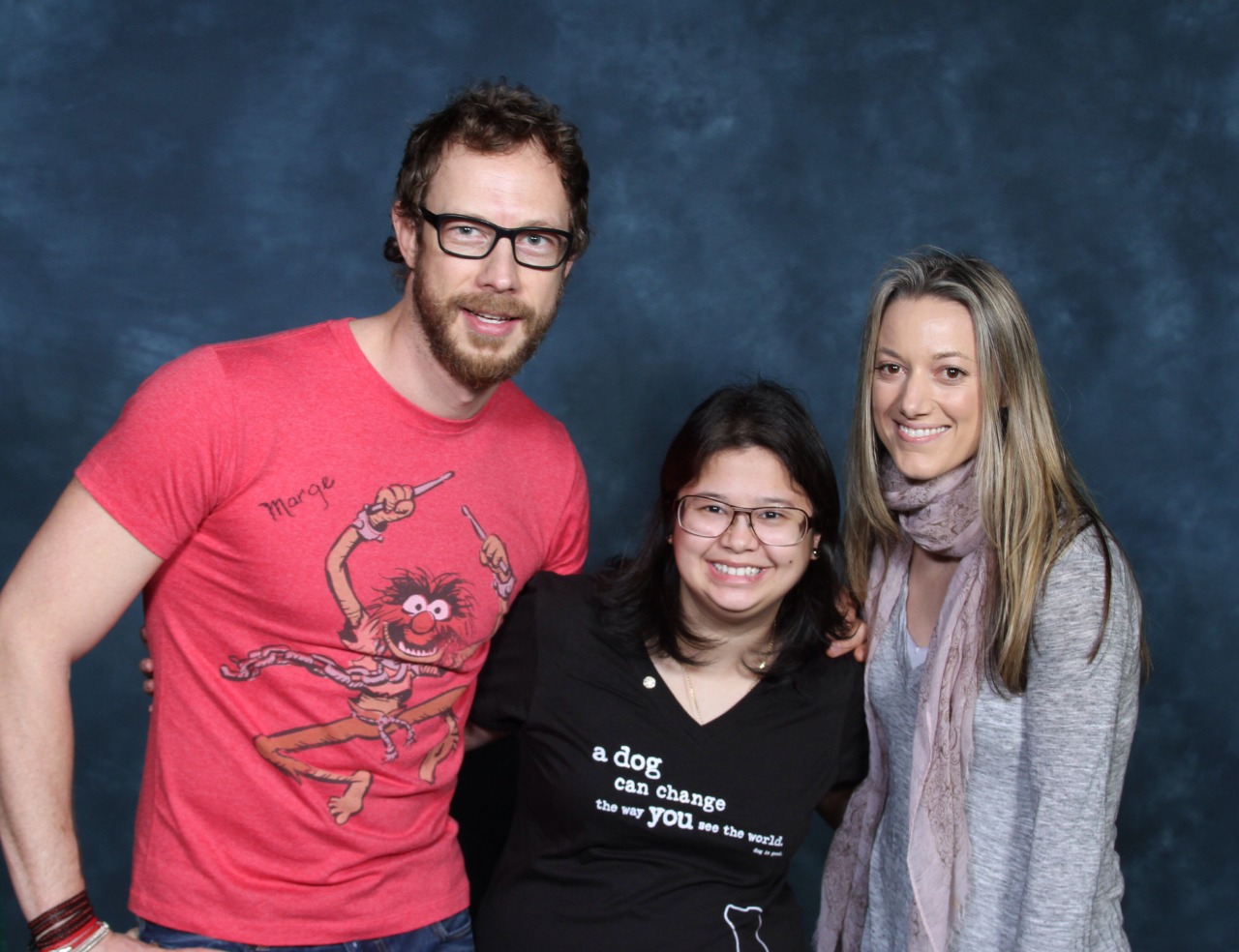
And she does. Since attending Emerald City Comic Con, Ono has traveled all over Europe and the United States to meet her favorite celebrities. She’s one of many people who use fandoms to process, connect or escape reality. Fandoms have an invaluable coping mechanism to deal with the anxiety and isolation of the Coronavirus pandemic. People are reading and writing fanfiction, watching streaming services like Twitch, Netflix, and YouTube, gaming, and spending time on social media platforms.
“Finding some type of community to be a part of has been vital for people’s mental health survival and for their physical well-being during the pandemic,” said Janina Scarlet, a clinical psychologist who uses Superhero Therapy, evidence-based therapy that incorporates characters from pop culture to treat anxiety, depression, and PTSD.
There’s also no right way to become a fan. Sometimes it’s love at first sight, sometimes it’s a slow burn, and sometimes you’re born into it. No one fandom activity — fanfiction, cosplay, fan art, fan videos, stan accounts, conventions — matters more than another. All that matters is “you engage with it because of your emotional attachment,” said Paul Booth, a professor of communication at DePaul University.

For someone like Simone Mallec, 21, from the Czech Republic, it took her a while to find interest in fandom. The summer after she graduated from high school, she binge-watched all 11 seasons of “RuPaul’s Drag Race.” Shortly after season 12 aired in February 2020, her university sent her home due to COVID-19. She was forced to quarantine for two weeks, wherein she created a Twitter stan account, @incorrectdrag, dedicated to quoting judges and contestants out of context.
Within about a week of making the account, Mallec had gained 50,000 followers. Previous contestants like Aquaria, season 10’s winner, Yvie Oddly, season 11’s winner, season 12 contestants like Crystal Methyd, Rock M. Sakura, and Nicky Doll followed her, replied to, retweeted, and liked her tweets.
“I don’t even know how it happened,” Mallec said. “But I just kept posting because I was bored. I had zero responsibility.” Now, a year and a half later, she has more than 104k followers.
For many people like Mallec, fandom gives them something to look forward to. And because COVID-19 has led to a series of losses, “people have been more passionate about their fandoms during the pandemic,” said Lynn Zubernis, a clinical psychologist and professor at West Chester University of Pennsylvania
Many fandoms operate as safe spaces, and they also provide comfort. Jenna Williams, 22, from Oklahoma, found solace in Gillian Anderson’s fan base. Although she’s been a fan of the actress since she was 11, she didn’t engage much with the fandom until the pandemic began. As she got more involved, she realized many fans ship Anderson’s character, Dana Scully, from “The X-Files” with her character, Stella Gibson, from “The Fall.” Around that same time, her therapist suggested she write fanfiction. Loving the pairing, she took that advice to add her own spin to the character plots. She’s now written 20 stories.
In general, fandom helps people understand and express who they are. “When we’re fans of something, it becomes part of who we are,” Booth said. “It’s often how we identify ourselves with other people.” You can get clues about what type of person someone is by their Netflix queue or bookshelf.
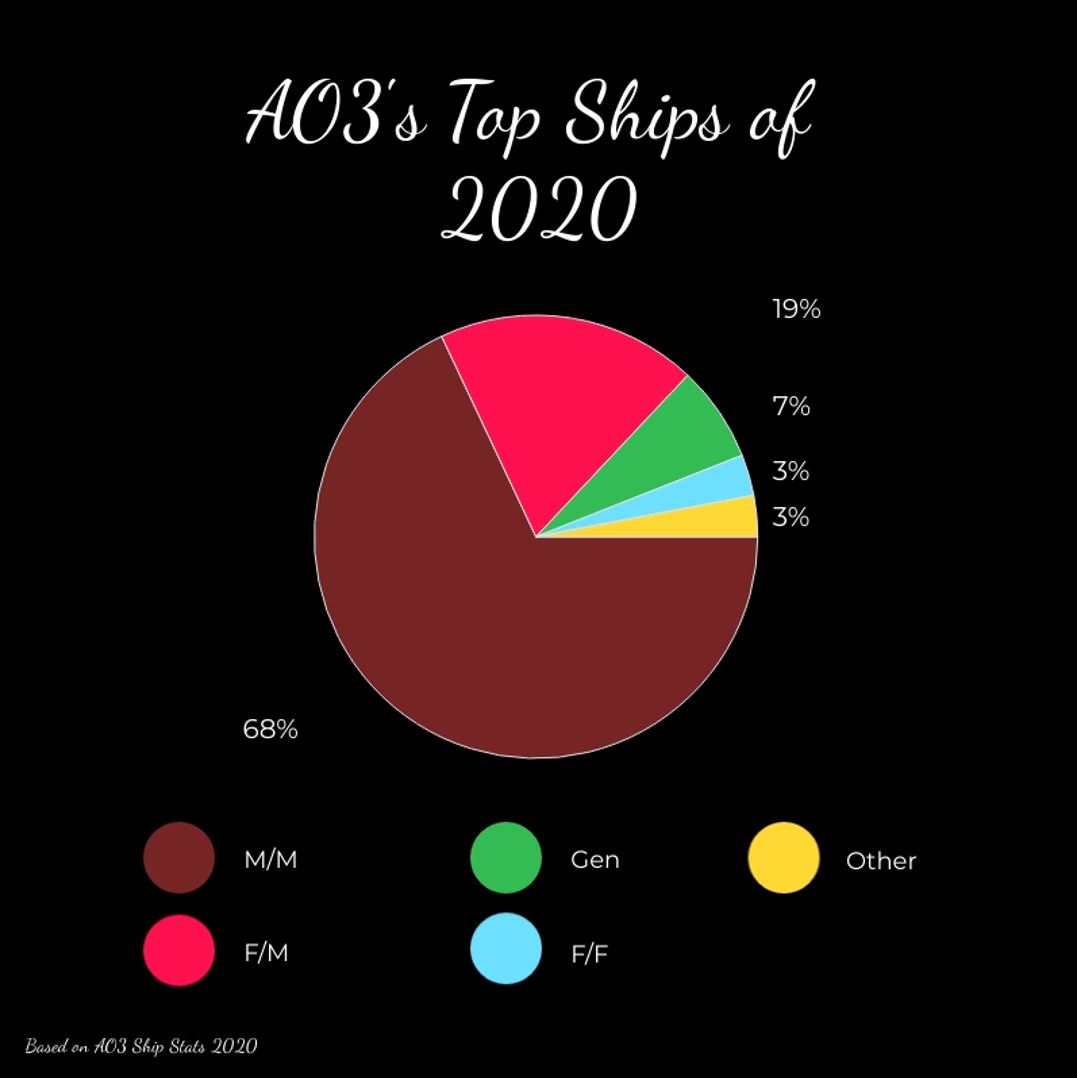
This sense of identity is why we’re drawn to certain characters and celebrities. “We have a tendency to be attracted to people that we perceive to be like us in some way,” said Gayle Stever, a professor of psychology at SUNY Empire State College.
One reason Williams loves Stella Gibson is that the character has a past with self-harm. And as someone who has also struggled with self-harm, that means a lot to Williams. “She’s a successful, powerful woman and she’s really made a life for herself, and that just happens to be a part of her story and that’s really inspiring to me,” Williams said.
Fans rewatch their favorite TV series or reread their favorite fanfiction story to feel better. In times of stress and panic, Asia Brooks, 23, from Westchester, watches her comfort anime, “The Boy and the Beast.”
After graduating from college in the middle of a pandemic, Brooks was stressed and worried about finding a job. For solace, she found comfort in the cosplay community. She began casually cosplaying her junior year of high school and then her senior year of college, she began cosplaying more seriously. The first character she ever cosplayed was Kiki from the Miyazaki film “Kiki’s Delivery Service,” at New York Comic-Con in 2014. But it wasn’t until last year that Brooks started to consider herself as a cosplayer. Lockdowns gave her time to create outfits, post pictures and videos on social media, and talk with other people within the community.
Cosplaying more regularly helped Brooks navigate the pandemic chaos. “I’m so much more confident,” she said, “and I’ve accepted myself a lot more now because of cosplay.”
Involvement in the community also gave her a sense of belonging. “When I finally decided to start cosplaying,” she said, “I felt more at home. I felt like I had a family.”
Brooks isn’t alone. Fandoms serve as social surrogates for many people. “One of the reasons people have been able to cope has been because they’ve been able to develop parasocial relationships or deeper friendships with other people who are a part of a particular fandom,” Scarlet said.
In fact, it’s not unusual for fandoms to become social networks. Since the pandemic has started, Williams has been on social media constantly, interacting with fellow Anderson fans. “I have a group chat that I’m in and we all spend almost every second every day talking, usually about Gillian,” she said. In return, this has allowed her to become more comfortable talking about various taboo topics. For example, “Gillian’s fan base likes to talk about vibrators a lot,” she said. “So now I’m at a point where it’s becoming more comfortable, and I’ve been talking to my roommate about vibrators.”
Ellie Tolan, 21, from England, met her best friend, Beth, through fandom. They met watching a fanfiction writer they both admire on a TikTok Livestream. After chatting for a while, they evolved from online friends to real-life besties. “I never thought I’d make friends with so many people across the world, but I have,” she said. “It just takes one message and one interaction with someone because you both like the same stuff.”
Growing up, Tolan never went through a Harry Potter phase. Like most people her age, she saw the films, but she never quite understood the hype, until Draco Malfoy started popping up all over her TikTok “For You” page. Although Harry Potter has always been popular, the pandemic has created a thirst for nostalgia content. “The texts when we were younger are becoming popular again and being rebooted, reset, and refreshed,” Booth said.
Not long after Tolan started watching videos of the Slytherin she began creating Draco Malfoy POV videos using a makeshift tripod with her iPhone, desk lamp, and perfume box in her bedroom. Dressed in a white school shirt and gray sweater vest, she inserts herself into the Hogwarts narrative, giving her the same kind of excitement she would have gotten going to a club or bar pre-pandemic.
Now she can’t imagine her life without Harry Potter, not just because of the feeling of pure happiness she gets from the fandom as a whole but because she has blossomed from it. “Once you engage with the content, you are pretty much in it for life,” Tolan said.
Ono feels the same way, which is why the loss of in-person conventions was a huge disappointment for her as it was for many. But the transition to virtual ones gave her the opportunity to watch panels featuring celebrities like Gal Gadot and interact one-on-one via video chat with actors like Lana Parrilla, all from the comfort of her home for a ridiculously cheap price by most comic con standards.
“If you’re home and you’ve got your laptop, virtually everything is available to you,” Stever said. “That’s a wonderful opportunity for people who can’t normally afford to do this.”
In April 2020, Ono attended HomeCon, which took place on Twitch and cost only $4.99. On Twitter, the convention asked fans to submit questions for the panelists, including “Lost Girl” stars Anna Silk, Rachel Skarsten, Paul Amos, Holden-Reid, and Palmer. Ono sent a question on a whim about how they felt about the fandom becoming a family. She never thought the moderator would select her question, but she did.
“I got really happy and cried a little bit because it was an important question,” she said, explaining that “Lost Girl” changed her life. The realization that family isn’t always blood and that her con friends can be her family help her during times in which she feels isolated.
The pandemic has also let Ono watch more of her favorite celebrities go live on social media. A huge fan of Jennifer Morrison, best known for her roles as Dr. Allison Cameron in “House” and Emma Swan in “Once Upon a Time”, Ono has watched all her Instagram live streams, including one where she taught her fans step-by-step how to make her famous pizza. Not only did Ono learn how to cook a new dish, but she learned that Morrison is the type of person to follow a recipe strictly.
With so many celebrities flocking to streaming platforms now, fans have gotten a “rare opportunity to see them in their real-life that you normally wouldn’t have,” Stever explained.
In a time of social distancing, fandom brings people together and improves lives. The rise of fandoms has allowed people to not only survive but thrive amidst the coronavirus chaos. In a post-pandemic world, they will only continue to offer fans connection and support.

